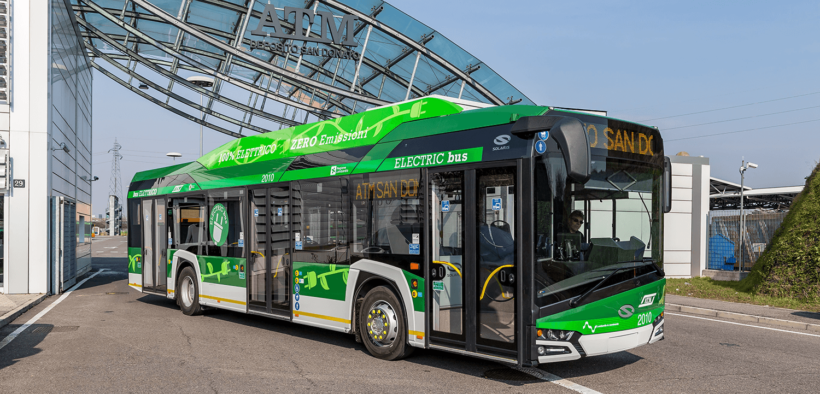Study: Shift to electric trucks and buses could save 57,000 lives
Share

It’s no surprise that electric cars are the vehicles that get the most attention, but passenger vehicles are not the sole vehicles on the road that deserve attention. According to a new study from the Environmental Defense Fund, the switch to electric trucks and busses in urban areas could prevent more than 57,000 premature deaths by 2050.
A recent press release by the Environmental Defense Fund stated that heavy-duty vehicles and buses are a significant cause of air emissions. The health strain falls heavily on communities of color and low-income households.
According to the Environmental Defense Fund, these cars account for just about 4 percent of total road vehicles in the United States. They are the primary producers of nitrogen oxide emissions, particulate matter, which produce more air pollution each year than Australia’s entire country.
The group noted that poorer places tend to be closer to bridges, ports, and freight depots, increasing health threats.
The study also discovered that increasingly stringent pollution standards would help strip emissions from freight vehicles used in urban areas by 2035, hoping that all new trucks and busses by 2040 would reduce 200,000 tons of particulate matter by 2050 and 10 million tons of nitrogen oxide pollution.
The group noted that electric trucks and busses did not gain traction as quickly as electric cars, but that momentum was building.
The report results were released on the same day that 23 companies and industry groups submitted a letter request to the California Air Resources Board (CARB) in favor of the laws regulating electrical trucks in the region.
California has also required electric trucks by 2045, a goal that will be implemented in phases starting in 2024. It is also part of a 15-state partnership working towards the hybridization of all heavy-duty vehicles by 2050.
For fleet operators, FedEx said earlier this week that it will only purchase EVs from 2030 onwards and that it will have an all-EV fleet by 2040. Several manufacturers—such as Proterra and BYD—are currently selling electric busses in the U.S., but orders have been comparatively small to date.
Despite this, just 10% of the brand-new fleet of mail trucks announced last week that the U.S. Postal Service would be electric. The charging infrastructure continues to be a barrier for the largest commercial vehicles. Just like with electric cars, electric trucks will also need a network of charging stations to replace conventional diesel trucks efficiently.

